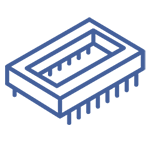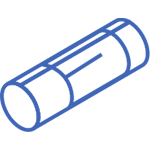

Coilcraft 0201DS-9N6XJE
Manufacturer No:
0201DS-9N6XJE
Tiny WHSLManufacturer:
Utmel No:
506-0201DS-9N6XJE
Package:
0603
Description:
0201DS-9N6XJE datasheet pdf and Fixed Inductors product details from Coilcraft stock available at Utmel
Quantity:
Delivery:





Payment:











In Stock : Please Inquire
Please send RFQ , we will respond immediately.
United States
China
Canada
Japan
Russia
Germany
United Kingdom
Singapore
Italy
Hong Kong(China)
Taiwan(China)
France
Korea
Mexico
Netherlands
Malaysia
Austria
Spain
Switzerland
Poland
Thailand
Vietnam
India
United Arab Emirates
Afghanistan
Åland Islands
Albania
Algeria
American Samoa
Andorra
Angola
Anguilla
Antigua & Barbuda
Argentina
Armenia
Aruba
Australia
Azerbaijan
Bahamas
Bahrain
Bangladesh
Barbados
Belarus
Belgium
Belize
Benin
Bermuda
Bhutan
Bolivia
Bonaire, Sint Eustatius and Saba
Bosnia & Herzegovina
Botswana
Brazil
British Indian Ocean Territory
British Virgin Islands
Brunei
Bulgaria
Burkina Faso
Burundi
Cabo Verde
Cambodia
Cameroon
Cayman Islands
Central African Republic
Chad
Chile
Christmas Island
Cocos (Keeling) Islands
Colombia
Comoros
Congo
Congo (DRC)
Cook Islands
Costa Rica
Côte d’Ivoire
Croatia
Cuba
Curaçao
Cyprus
Czechia
Denmark
Djibouti
Dominica
Dominican Republic
Ecuador
Egypt
El Salvador
Equatorial Guinea
Eritrea
Estonia
Eswatini
Ethiopia
Falkland Islands
Faroe Islands
Fiji
Finland
French Guiana
French Polynesia
Gabon
Gambia
Georgia
Ghana
Gibraltar
Greece
Greenland
Grenada
Guadeloupe
Guam
Guatemala
Guernsey
Guinea
Guinea-Bissau
Guyana
Haiti
Honduras
Hungary
Iceland
Indonesia
Iran
Iraq
Ireland
Isle of Man
Israel
Jamaica
Jersey
Jordan
Kazakhstan
Kenya
Kiribati
Kosovo
Kuwait
Kyrgyzstan
Laos
Latvia
Lebanon
Lesotho
Liberia
Libya
Liechtenstein
Lithuania
Luxembourg
Macao(China)
Madagascar
Malawi
Maldives
Mali
Malta
Marshall Islands
Martinique
Mauritania
Mauritius
Mayotte
Micronesia
Moldova
Monaco
Mongolia
Montenegro
Montserrat
Morocco
Mozambique
Myanmar
Namibia
Nauru
Nepal
New Caledonia
New Zealand
Nicaragua
Niger
Nigeria
Niue
Norfolk Island
North Korea
North Macedonia
Northern Mariana Islands
Norway
Oman
Pakistan
Palau
Palestinian Authority
Panama
Papua New Guinea
Paraguay
Peru
Philippines
Pitcairn Islands
Portugal
Puerto Rico
Qatar
Réunion
Romania
Rwanda
Samoa
San Marino
São Tomé & Príncipe
Saudi Arabia
Senegal
Serbia
Seychelles
Sierra Leone
Sint Maarten
Slovakia
Slovenia
Solomon Islands
Somalia
South Africa
South Sudan
Sri Lanka
St Helena, Ascension, Tristan da Cunha
St. Barthélemy
St. Kitts & Nevis
St. Lucia
St. Martin
St. Pierre & Miquelon
St. Vincent & Grenadines
Sudan
Suriname
Svalbard & Jan Mayen
Sweden
Syria
Tajikistan
Tanzania
Timor-Leste
Togo
Tokelau
Tonga
Trinidad & Tobago
Tunisia
Turkey
Turkmenistan
Turks & Caicos Islands
Tuvalu
U.S. Outlying Islands
U.S. Virgin Islands
Uganda
Ukraine
Uruguay
Uzbekistan
Vanuatu
Vatican City
Venezuela
Wallis & Futuna
Yemen
Zambia
Zimbabwe
You may place an order without registering to Utmel.
We strongly suggest you sign in before purchasing as you can track your order in real time.
For your convenience, we accept multiple payment methods in USD, including PayPal, Credit Card, and wire transfer.
RFQ (Request for Quotations)It is recommended to request for quotations to get the latest prices and inventories about the part.
Our sales will reply to your request by email within 24 hours.
1. You'll receive an order information email in your inbox. (Please remember to check the spam folder if you didn't hear from us).
2. Since inventories and prices may fluctuate to some extent, the sales manager is going to reconfirm the order and let you know if there are any updates.
- TypeParameter
- Lifecycle Status
Lifecycle Status refers to the current stage of an electronic component in its product life cycle, indicating whether it is active, obsolete, or transitioning between these states. An active status means the component is in production and available for purchase. An obsolete status indicates that the component is no longer being manufactured or supported, and manufacturers typically provide a limited time frame for support. Understanding the lifecycle status is crucial for design engineers to ensure continuity and reliability in their projects.
ACTIVE (Last Updated: 5 hours ago) - Package / Case
refers to the protective housing that encases an electronic component, providing mechanical support, electrical connections, and thermal management.
0603 - Surface Mount
having leads that are designed to be soldered on the side of a circuit board that the body of the component is mounted on.
YES - Terminal Shape
Terminal Shape in electronic components refers to the physical design of the connection points on the component that allow for electrical connections to be made. These terminals can come in various shapes such as pins, leads, pads, or terminals with specific configurations like surface mount or through-hole. The terminal shape is important as it determines how the component can be mounted on a circuit board or connected to other components. Different terminal shapes are used based on the specific requirements of the electronic circuit design and manufacturing process.
WRAPAROUND - Shape/Size Description
Shape/Size Description in electronic components refers to the physical dimensions and geometric characteristics of a component. This includes parameters such as length, width, height, and overall form factor, which can affect how the component fits within a circuit board or electronic enclosure. Proper identification of Shape/Size Description is crucial for ensuring compatibility with other components and for optimizing space in design layouts.
RECTANGULAR PACKAGE - Frequency-Self-Resonant6.2GHz
- Material-CoreCeramic
- Tolerance
In electronic components, "tolerance" refers to the acceptable deviation or variation from the specified or ideal value of a particular parameter, such as resistance, capacitance, or voltage. It indicates the range within which the actual value of the component can fluctuate while still being considered acceptable for use in a circuit. Tolerance is typically expressed as a percentage or a specific value and is important for ensuring the accuracy and reliability of electronic devices. Components with tighter tolerances are more precise but may also be more expensive. It is crucial to consider tolerance when selecting components to ensure proper functionality and performance of the circuit.
5% - JESD-609 Code
The "JESD-609 Code" in electronic components refers to a standardized marking code that indicates the lead-free solder composition and finish of electronic components for compliance with environmental regulations.
e3 - Number of Terminations2
- ECCN Code
An ECCN (Export Control Classification Number) is an alphanumeric code used by the U.S. Bureau of Industry and Security to identify and categorize electronic components and other dual-use items that may require an export license based on their technical characteristics and potential for military use.
EAR99 - Terminal Finish
Terminal Finish refers to the surface treatment applied to the terminals or leads of electronic components to enhance their performance and longevity. It can improve solderability, corrosion resistance, and overall reliability of the connection in electronic assemblies. Common finishes include nickel, gold, and tin, each possessing distinct properties suitable for various applications. The choice of terminal finish can significantly impact the durability and effectiveness of electronic devices.
Matte Tin (Sn) - with Nickel (Ni) barrier - Composition
Parameter "Composition" in electronic components refers to the specific materials and substances used in the construction of the component. It encompasses the chemical and physical elements that make up the component, influencing its electrical, thermal, and mechanical properties. The composition can affect the performance, reliability, and durability of the component in various applications. Understanding the composition is essential for optimizing the design and functionality of electronic devices.
Wirewound - HTS Code
HTS (Harmonized Tariff Schedule) codes are product classification codes between 8-1 digits. The first six digits are an HS code, and the countries of import assign the subsequent digits to provide additional classification. U.S. HTS codes are 1 digits and are administered by the U.S. International Trade Commission.
8504.50.80.00 - Packing Method
The packing method in electronic components refers to the technique used to package and protect the component during shipping and handling. It encompasses various forms including tape and reel, tray, tube, or bulk packaging, each suited for different types of components and manufacturing processes. The choice of packing method can affect the ease of handling, storage, and the efficiency of assembly in automated processes. Additionally, it plays a crucial role in ensuring the reliability and integrity of the components until they are used in electronic devices.
TR - Shielding
Shielding in electronic components refers to the practice of enclosing or surrounding sensitive electronic circuits or components with a conductive material to protect them from electromagnetic interference (EMI) or radio frequency interference (RFI). The shielding material acts as a barrier that blocks or absorbs unwanted electromagnetic signals, preventing them from affecting the performance of the electronic device. Shielding can be achieved using materials such as metal enclosures, conductive coatings, or shielding tapes. Proper shielding is essential in electronic design to ensure the reliable operation of electronic devices in environments where electromagnetic interference is present.
NO - Number of Functions1
- Construction
Construction in electronic components refers to the design and materials used in the manufacturing of the components. It encompasses the physical structure, arrangement, and integration of various parts like substrates, conductors, and insulators. The construction impacts the performance, reliability, and thermal properties of the component, influencing how it interacts with electrical signals and other components in a circuit. Different construction techniques can also affect the size, weight, and cost of the electronic component.
Rectangular - Reach Compliance Code
Reach Compliance Code refers to a designation indicating that electronic components meet the requirements set by the Registration, Evaluation, Authorization, and Restriction of Chemicals (REACH) regulation in the European Union. It signifies that the manufacturer has assessed and managed the chemical substances within the components to ensure safety and environmental protection. This code is vital for compliance with regulations aimed at minimizing risks associated with hazardous substances in electronic products.
compliant - Inductance
Inductance is a property of an electrical component that quantifies its ability to store energy in a magnetic field when electric current flows through it. It is measured in henries and indicates how much voltage is induced in the component as a result of a change in current. Inductance is an essential characteristic in coils, inductors, and transformers, affecting the behavior of electrical circuits, particularly in alternating current applications. Higher inductance values usually correlate with larger coils or more turns of wire in the component.
9.6 nH - Test Frequency
a statistical procedure for assessing data that contain counts or the numbers of occurrences of various categories or classes.
250MHz - DC Resistance (DCR)
DC Resistance (DCR) is a measure of the resistance of an electronic component when a direct current (DC) is applied. It quantifies how much opposition the component presents to the flow of electrical current under steady-state conditions. DCR is crucial for understanding power loss, heating, and efficient performance in circuits, as it affects the overall behavior of components such as inductors, transformers, and resistors. Lower DCR values typically indicate better efficiency and performance in a given application.
0.4Ohm - Inductor Application
Inductor application refers to the various uses of inductors in electronic circuits. Inductors are passive components that store energy in a magnetic field when electrical current passes through them. They are commonly used for filtering, energy storage, and in oscillators. Inductors also play a crucial role in inductive coupling and in transforming voltage levels in power supplies and signal processing applications. Their ability to resist changes in current makes them essential for managing current flow and reducing noise in electronic systems.
RF INDUCTOR - Terminal Placement
Terminal Placement in electronic components refers to the physical location of the terminals or connection points on the component where external electrical connections are made. The placement of terminals is crucial for ensuring proper connectivity and functionality of the component within a circuit. It is important to consider factors such as spacing, orientation, and accessibility of terminals to facilitate easy installation and maintenance. Proper terminal placement also helps in reducing the risk of short circuits or other electrical issues. Overall, terminal placement plays a significant role in the design and usability of electronic components.
DUAL ENDED - Quality Factor-Min (at L-nom)
The Quality Factor-Min (at L-nom) is a parameter used to measure the quality of an electronic component, particularly in the context of inductors. It represents the minimum quality factor value of the component at its nominal inductance (L-nom). The quality factor, also known as Q factor, is a measure of the efficiency of an inductor in storing and releasing energy. A higher quality factor indicates lower energy losses and better performance. Therefore, the Quality Factor-Min (at L-nom) provides important information about the component's performance and efficiency under specific operating conditions.
38 - Inductor Type
The parameter "Inductor Type" in electronic components refers to the specific design or construction of an inductor. Inductors are passive electronic components that store energy in a magnetic field when current flows through them. The type of inductor can vary based on factors such as the core material, winding configuration, and overall construction. Common types of inductors include air core, ferrite core, toroidal, and solenoid. Each type has its own characteristics and is chosen based on factors such as inductance value, current handling capability, and frequency response. Selecting the right inductor type is crucial for achieving desired performance in electronic circuits.
GENERAL PURPOSE INDUCTOR - Case/Size Code
The "Case/Size Code" parameter in electronic components refers to a standardized code that specifies the physical dimensions and package type of the component. This code helps in identifying the size and shape of the component, which is crucial for selecting the right component for a particular application and ensuring compatibility with the circuit board. The Case/Size Code typically consists of alphanumeric characters that represent specific dimensions and package styles, allowing engineers and manufacturers to easily reference and compare different components. Understanding the Case/Size Code is essential for proper component selection, placement, and soldering during the assembly process in electronic circuits.
0201 - Rated Current-Max
Rated Current-Max in electronic components refers to the maximum current that the component can safely handle without being damaged or causing a malfunction. This parameter is crucial for determining the operational limits of the component and ensuring that it is used within its specified range. Exceeding the rated current-max can lead to overheating, component failure, or even pose a safety hazard. It is important to always refer to the component's datasheet or specifications to ensure that the rated current-max is not exceeded during operation.
0.28A - Inductance-Nom (L)
Inductance-Nom (L) is a parameter used to describe the nominal inductance of an electronic component, typically an inductor. Inductance is a property of a component that represents its ability to store energy in a magnetic field when a current passes through it. The unit of inductance is the henry (H). The nominal inductance value indicates the expected or specified inductance of the component under normal operating conditions. It is an important parameter to consider when designing circuits that require specific inductance values for proper functionality.
0.0096 µH - RMS Current (Irms)
RMS Current (Irms) refers to the Root Mean Square value of the alternating current flowing through an electronic component or circuit. It is a measure of the effective current that produces the same heating effect as the equivalent DC current. In AC circuits, the current continuously changes direction, so using the RMS value helps in calculating power dissipation and determining the component's capability to handle the current without overheating. RMS Current is crucial in selecting components like resistors, capacitors, and inductors to ensure they can safely operate within their specified current ratings.
280mA - Series Resistance
Series resistance in electronic components refers to the resistance that is present in series with the main component or circuit. It is the resistance that limits the flow of current through the component or circuit. Series resistance can affect the overall performance of the component by causing voltage drops and affecting the current flow. It is important to consider and account for series resistance when designing and analyzing electronic circuits to ensure proper functionality and performance.
400mOhm - Ambient Temperature Range High
This varies from person to person, but it is somewhere between 68 and 77 degrees F on average. The temperature setting that is comfortable for an individual may fluctuate with humidity and outside temperature as well. The temperature of an air conditioned room can also be considered ambient temperature.
125°C - Height450μm
- RoHS Status
RoHS means “Restriction of Certain Hazardous Substances” in the “Hazardous Substances Directive” in electrical and electronic equipment.
RoHS Compliant
![LTC2634CUD-LMX12#PBF]()
LTC2634CUD-LMX12#PBF
Analog Devices![LTC2637IDE-HMI8#PBF]()
LTC2637IDE-HMI8#PBF
Analog Devices![LT3094IDD#TRPBF]()
LT3094IDD#TRPBF
Analog Devices![LTC6993CS6-3#TRPBF]()
LTC6993CS6-3#TRPBF
Analog Devices![LTC3838IFE#TRPBF]()
LTC3838IFE#TRPBF
Analog Devices![LTC4162IUFD-SST#TRPBF]()
LTC4162IUFD-SST#TRPBF
Analog Devices![LTC3374AIFE#PBF]()
LTC3374AIFE#PBF
Analog Devices![LT8606BEDC#TRPBF]()
LT8606BEDC#TRPBF
Analog Devices![LTC4121EUD#PBF]()
LTC4121EUD#PBF
Analog Devices![LT3066EDE-3.3#TRPBF]()
LT3066EDE-3.3#TRPBF
Analog Devices











